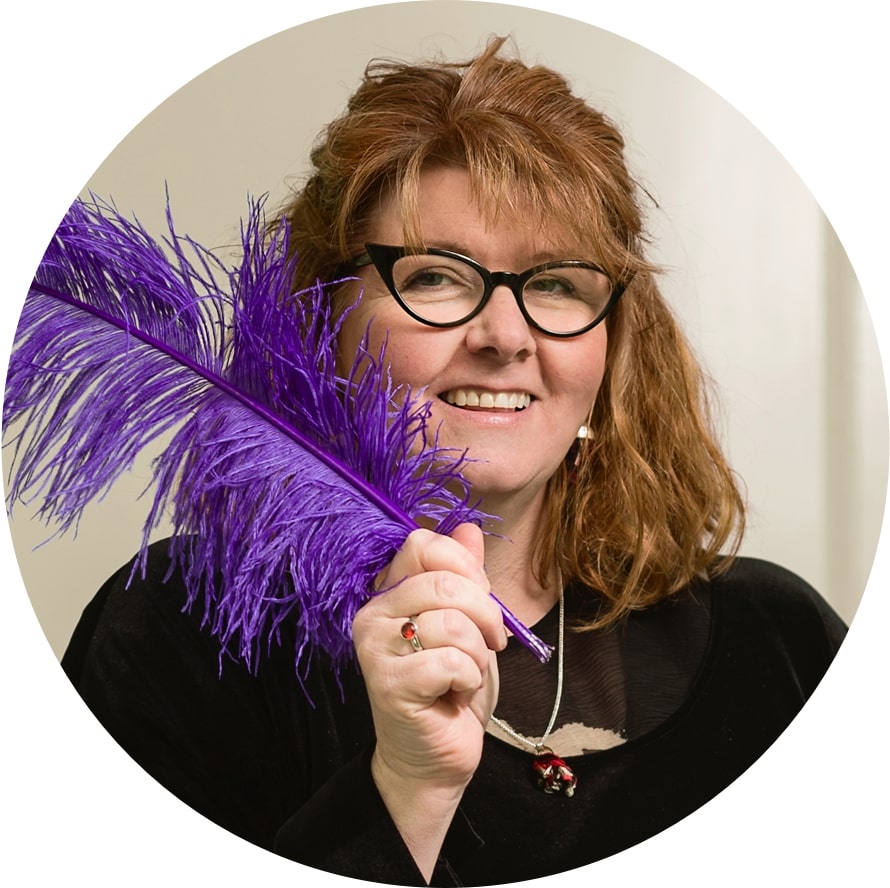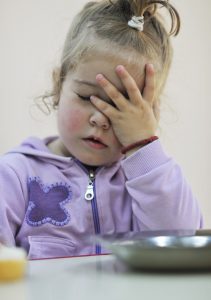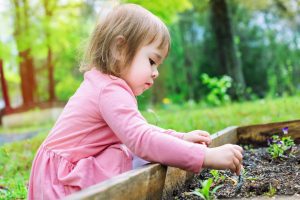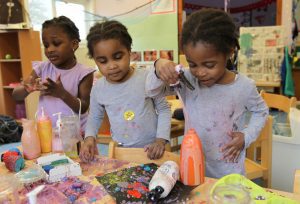The Comfort of Curiosity in the Current Context


Curiosity, Investigation, Discovery
Human beings are innately curious, particularly about novel experiences and subjects. This is evident in reference to early years learners, as most things they encounter during their day to day lives, is new. The world is exciting, curiosity-sparking, and question-creating, leading these young children to investigate and make new discoveries regularly.
The experiences we have in early childhood host unique potential for growth, development and learning. When we are encouraged at this early stage to develop skills and mindsets for learning, we are far more likely to continue a positive relationship towards learning throughout our later childhood, teenage and adult lives.
We make a real difference to children in our settings with the enriching and exciting experiences we create, and offer opportunities to all children in our settings to be curious, to investigate and to discover every time they come through the door.
The Impact of Coronavirus on Children’s Learning
The recent and ongoing Coronavirus pandemic has had an immense impact on children’s access to education, and also to their overall health and wellbeing, giving great cause for concern to all adults, but particularly to practitioners working with children who are now tasked with remedying the negative effects of the pandemic.
Statistically, the Coronavirus pandemic further increased the level of child poverty across the globe, with 120,000 more children living in poverty in the UK (Butler, 2020), and 150 million worldwide (Save The Children, 2020), only 6 months after the pandemic began.
The Attainment Gap has been discussed widely across the education industries for some time, and it defines the difference in educational attainment and outcomes between children and young people from different SIMD areas (Scottish Government, 2022). It is broadly understood that children from low-income families, and/or from areas with a high rating on the multiple deprivation index, are less likely to exit education with high levels attainment; and further, their likelihood of achieving positive outcomes in relation to employment or further education.
Due to the worsening of poverty levels across the UK, as forecasted, the Attainment Gap has also widened following the Coronavirus pandemic (Winchester, 2020; Taylor, 2021). In Scotland, it is a national priority to close the attainment gap in literacy, numeracy and health and wellbeing skills across all learning, with these areas being cited as the responsibilities of all (Education Scotland, online). Let’s take a closer look at how we, as early years practitioners, might find comfort in our learners’ natural curiosities, and how we can use this to make improvements to the Attainment Gap between children in our settings, with particular reference to the responsibilities of all.
Courage to be Curious
Perhaps the most pressing area of development for us to address is children’s health and wellbeing. Children and young people at every stage of development are likely to have suffered negative impacts to their overall mental and physical health, and also to aspects of their social and emotional development due to the pandemic.
When COVID-19 was first gaining recognition and attention, it had a high prevalence in the media, and created a collective sense of worry among most of the global population. Children, even in their youngest years, are very observant to the behaviours and emotions of others, so it is likely that many of them will have recognised and shared in their families and communities fears.
So, how might curiosity help us to ease some of these fears and tensions, and also promote social development for our young learners?
A child’s curiosity is a natural starting point for all learning. As practitioners, we can follow these curiosities to create investigative experiences which allow children to lead in discoveries. In relation to health and wellbeing, the supportive relationships we have with children will promote their development of positive thinking habits and mindsets with regards to themselves, their abilities, and their desire to learn.
When we recognise children’s interests, we are also showing them that we see and hear them, and that we care about them. In following their curiosity when it is sparked by something, and joining them in investigation, we provide them with a feeling of safety in their exploration. Providing children with the security of our care for them, will allow them to develop understandings of what healthy relationships look like, and what they should expect from adults.
We are not present for every waking moment of children’s lives, however, we do spend a large percentage of this time with them. Although differences in their home lives will continue to influence their development, the positive effects of sharing a positive relationship with even a single adult in their lives leaves a lasting impact.
Curious Conversations
Now for another of the responsibilities of all; literacy.
Inequalities in the development of literacy skills have been widely reported across the education industries for quite some time. There are many aspects of children’s experiences that impact on their development of literacy skills; such as their parents’ level of education impacting on the number of vocabulary words they are exposed to. Lower literacy attainment is likely to have a huge effect on children’s ability to communicate with others and express themselves effectively.
For practitioners working in early years settings, it is crucial that we use varied and enriched language. In our conversations with children, we are expanding their awareness of sounds, and exposing them to new ways of describing and explaining their ideas. In relation to curiosity, the suggestion for practice remains the same as we have previously suggested: show an interest in your children.
When we acknowledge children’s curiosities, we open the door to meaningful learning conversations. When children are curious, they are already engaged. When we support this curiosity by asking children what they think, feel, predict, and see, we allow them to vocalise their experiences, and can further scaffold their literacy development in our responses and questioning.
Curiosity Counts
Numeracy accounts for the final of the responsibilities of all. In the early years, children’s development of cognitive skills are not yet ready to perceive complex numerical and mathematical concepts, however, through their experiences they are growing processes and skills for numeracy and maths which will be built upon later in their lives.
There are countless opportunities to support children in their development of numeracy skills, however, many practitioners feel nervous towards their abilities to do so, due to their own negative experiences in numerical and mathematical learning in childhood.
Numerical information is everywhere, although we may not always recognise it. In reference to curriculum for excellence, numeracy skills across learning are separated into 8 areas: estimation and rounding; number and number processes; fractions, decimals and percentages; money; time; measurement; data and analysis; ideas of chance and uncertainty.
For early years learners, they cannot yet conceive many of these skills and understandings in a clear enough way to be curious about them. However, as practitioners, when we are supporting children in their curious investigations of other things, we can try to ask questions which support their development of these skills.
For example, when a child is drawn to role playing in the shop corner, we might want to role play with them and introduce the idea of paying for things with money. Or, if children are engaged in a physical activity as a group, we can use this opportunity to introduce them to measurement, by using timers to measure who can run the fastest, or measuring tapes to measure who can throw the farthest.
The role of the practitioner in the early years setting is to be a resource, and a learner. As practitioners, we are able to enhance the experiences of children, and have a positive impact on what and how much they learn when exploring their own curiosities.
Let’s Get Curious
A key point we’d like to emphasise to all practitioners – especially those who are feeling the weight of their role in helping society to recover from the Coronavirus pandemic – is that young children are constantly learning, with or without our help. They will naturally continue to learn throughout their early development, as it is their instinct at this stage of their lives.
However, although the children in our settings will learn regardless of the quality of our support and engagement with them, we do have a power to make a gigantic impact on the effectiveness of their learning experiences. By recognising, acknowledging, and supporting their curiosities, we are helping them to develop positive learning mindsets, to grow their literacy and communication skills, and, to trust and understand what they have discovered in their investigations.
The Attainment Gap has been an issue that the education system has faced since its conception and closing the gap is a complex challenge, especially following international crises like the Coronavirus pandemic. We cannot make a clear claim that empowering children to be curious will solve the problems that the Attainment Gap presents, however, we can be hopeful that encouraging curiosity for learning may give children the opportunity to develop a passion for learning, which they can then carry with them throughout their lives.
Developing a desire for knowledge, and a love of learning, will help children as they journey throughout their school years, to embrace challenges, and find opportunity in the unknowns they face, to learn. So go forth, be curious, create experiences for the children in your settings that set their imagination and wonderings alight. Encourage questions, engage in investigation, and support your wee ones to find their own discoveries and answers.
References
Butler, P., 2020. Almost 700,000 driven into poverty by Covid crisis in UK, study finds. [online] The Guardian. Available at: <https://www.theguardian.com/society/2020/nov/30/almost-700000-driven-poverty-covid-crisis-uk-study> [Accessed 11 May 2022].
Education Scotland, online. curriculum for excellence: responsibilities of all practitioners. [online] Available at: <https://www.education.gov.scot/media/1hddrq2l/responsibility-of-all-hwb-lit-numeracy-across-learning.pdf> [Accessed 24 May 2022].
Savethechildren.org.uk. 2022. 150 million additional children plunged into poverty due to COVID-19. [online] Available at: <https://www.savethechildren.org.uk/news/media-centre/press-releases/150-additional-children-poverty-covid19> [Accessed 11 May 2022].
Scottish Government. 2022. Pupil attainment: closing the gap – Schools – gov.scot. [online] Available at: <https://www.gov.scot/policies/schools/pupil-attainment/> [Accessed 11 May 2022].
Taylor, R., 2021. Covid-19: impact on child poverty and on young people’s education, health and wellbeing. [online] https://lordslibrary.parliament.uk/. Available at: <https://lordslibrary.parliament.uk/covid-19-impact-on-child-poverty-and-on-young-peoples-education-health-and-wellbeing/> [Accessed 11 May 2022].
Winchester, N., 2020. Covid-19 and the educational attainment gap. [online] https://lordslibrary.parliament.uk. Available at: <https://lordslibrary.parliament.uk/covid-19-and-the-educational-attainment-gap/> [Accessed 11 May 2022].


